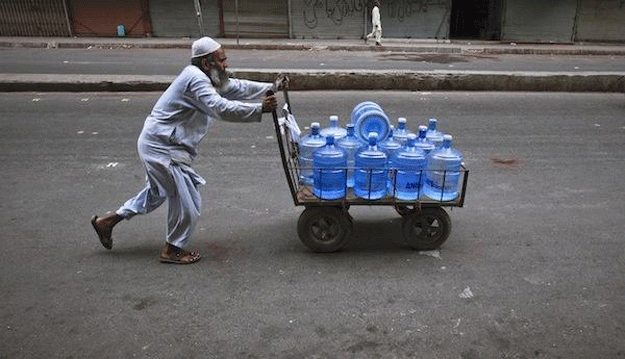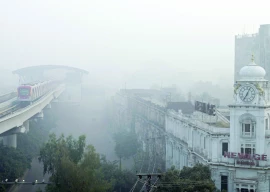
Pakistan ranked five in the new index developed by The Water Institute at the University of North Carolina at Chapel Hill's Gillings School of Global Public Health in the US, while India occupied an unenviable 92nd position.
Read: Water and Sanitation Extension Programme: Thousands benefit in Chitral, G-B
For 2015, high performance countries include those that have made significant improvement in recent years compared to their peers. Low performing countries include those that showed a standstill or decline in water and sanitation access in recent years, compared to their peers.
India's ranking of 92nd place predates the recent launch of the “Clean India Mission" by Indian Prime Minister Narendra Modi.
Sub-Saharan Africa countries including Mali, South Africa, and Ethiopia are also among the top performers world-wide in spite of modest resources, according to the WaSH Performance Index that evaluates country performance in improving access to water and sanitation and in eroding inequalities in access.
High performers also included China, El Salvador, Niger, Egypt, and Maldives. Russia, the Philippines and Brazil on the other hand, were low performers.
Read: Water, sanitation issues: ‘Existing mechanism needs overhaul’
The index compares countries regardless of size and income level. By use this method the report deduced that a country’s gross domestic product does not determine performance in improving water and sanitation access for its citizens.
"This means that even countries with limited resources can make great strides if they have the right programmes in place," said co-author of the report Jamie Bartram, director of The Water Institute at UNC.
"National governments, NGOs, and aid agencies can direct their resources toward building systems and capacity for action in countries that are lagging, and toward implementation where those capacities are in place and performing," Bartram noted.
The article originally appeared on The Economic Times
1731325890-0/trump-(24)1731325890-0-405x300.webp)


1720507435-0/BeFunky-collage-(26)1720507435-0-165x106.webp)




1724926799-0/Untitled-design-(7)1724926799-0-270x192.webp)
1731829534-0/Copy-of-Untitled-(9)1731829534-0-270x192.webp)







COMMENTS (45)
Comments are moderated and generally will be posted if they are on-topic and not abusive.
For more information, please see our Comments FAQ